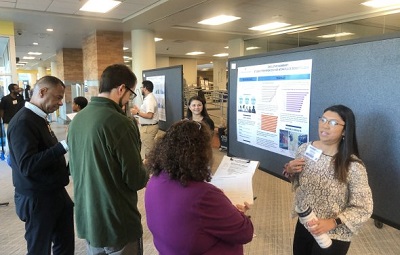Description/Abstract/Artist Statement
This research aims to advance theory concerning career progression barriers for Black women. It introduces and advances critical race theory and theories of identity blindness and consciousness as important mechanisms that impact the Black women’s career trajectories. Identity blindness is a tendency to overlook or ignore an individual’s unique racial and gender identity in professional settings can create systemic barriers for professional advancement. Conversely, identity consciousness purposely acknowledges and embraces racial and gender identities and can create more inclusive workplaces that support diverse individuals. This study will use secondary data from the US Census Public Use File (PUF). The dataset will be used to explore the patterns, trends, and results in career progression for Black women. Additionally, the data will be used to analyze color blind and color-conscious ideologies in the workplace. The results of this quantitative study will contribute to a deeper understanding of the barriers Black women face during their career progression.
Faculty Advisor/Mentor
Jay O'Toole
Faculty Advisor/Mentor Department
Management
College Affiliation
College of Business (Strome)
Presentation Type
Oral Presentation
Disciplines
Benefits and Compensation | Business | Human Resources Management
Session Title
Interdisciplinary Topics
Location
Learning Commons @Perry Library, Room 1311
Start Date
3-30-2024 10:45 AM
End Date
3-30-2024 11:45 AM
Upload File
wf_yes
Included in
Removing the “I” Factor: Examining the Barriers to Career Progression for Black Women
Learning Commons @Perry Library, Room 1311
This research aims to advance theory concerning career progression barriers for Black women. It introduces and advances critical race theory and theories of identity blindness and consciousness as important mechanisms that impact the Black women’s career trajectories. Identity blindness is a tendency to overlook or ignore an individual’s unique racial and gender identity in professional settings can create systemic barriers for professional advancement. Conversely, identity consciousness purposely acknowledges and embraces racial and gender identities and can create more inclusive workplaces that support diverse individuals. This study will use secondary data from the US Census Public Use File (PUF). The dataset will be used to explore the patterns, trends, and results in career progression for Black women. Additionally, the data will be used to analyze color blind and color-conscious ideologies in the workplace. The results of this quantitative study will contribute to a deeper understanding of the barriers Black women face during their career progression.


